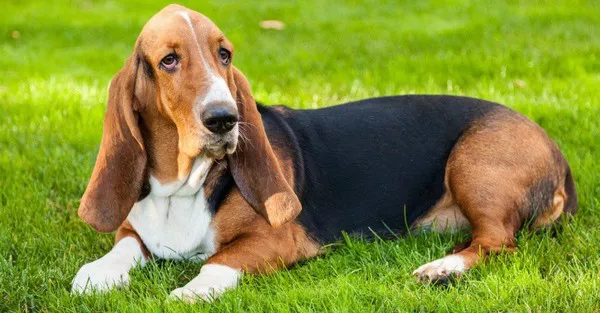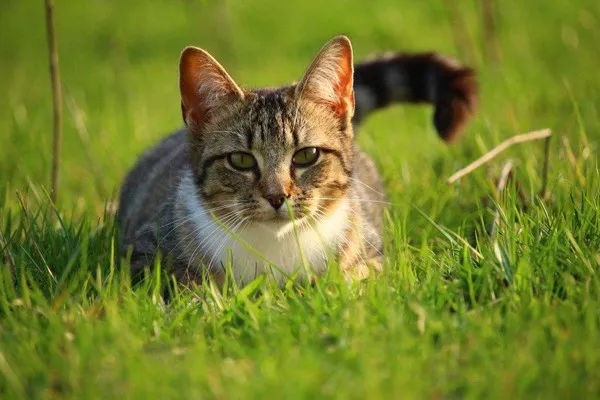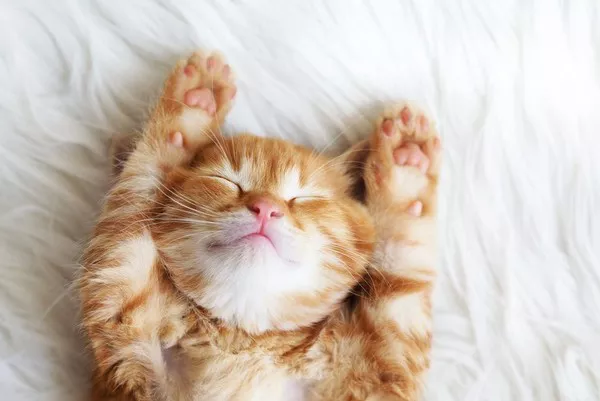Introduction to Basset Hounds
Basset Hounds are a beloved breed known for their long ears, droopy eyes, and gentle disposition. Originating from France, these hounds were bred for their keen sense of smell and ability to track game over rough terrain. Their low, sturdy build and distinct features make them easily recognizable and popular among dog enthusiasts worldwide. In this article, we’ll explore the size of full-grown Basset Hounds, including average measurements, growth patterns, factors influencing size, health considerations, and tips for caring for your growing Basset Hound.
Average Size of a Full-Grown Basset Hound
When fully grown, Basset Hounds typically have an endearing and distinct appearance. On average, these hounds stand between 12 to 15 inches (30 to 38 cm) tall at the shoulder and weigh anywhere from 40 to 65 pounds (18 to 29 kg). Additionally, they typically measure around 20 to 24 inches (51 to 61 cm) in length from the tip of the nose to the base of the tail. However, individual Basset Hounds may vary slightly in size, with some males being larger than females.
Growth Chart
Understanding the growth trajectory of your Basset Hound is essential for ensuring they develop properly. Below is a general growth chart outlining expected sizes at different ages:
Birth to 2 weeks: Basset Hound puppies are born small and helpless, weighing around 1 to 2 pounds (0.45 to 0.9 kg) at birth.
2 weeks to 3 months: During this stage, puppies experience rapid growth, doubling or even tripling their birth weight. By three months, they typically weigh between 10 to 20 pounds (4.5 to 9 kg).
3 to 6 months: Growth continues steadily during this period, with puppies reaching around 50% of their adult weight. At six months, they may weigh anywhere from 20 to 35 pounds (9 to 16 kg).
6 to 12 months: Basset Hounds are considered adolescents during this stage, and their growth rate begins to slow down. By twelve months, they usually reach about 75% of their adult weight, ranging from 30 to 50 pounds (14 to 23 kg).
12 to 18 months: This is the final stage of growth for Basset Hounds. By eighteen months, they typically reach their full adult size, both in terms of height and weight.
It’s important to note that these are general guidelines, and individual puppies may deviate from this timeline.
Factors Influencing Size
Several factors can influence the size of a Basset Hound, including genetics, diet, and overall health.
Genetics: The genetic makeup of a Basset Hound plays a significant role in determining its size. Puppies inherit traits from their parents, including height, weight, and body structure. Breeders carefully select mating pairs to produce offspring with desirable characteristics, but there can still be variation within a litter.
Diet: Nutrition is crucial for proper growth and development in Basset Hounds. A balanced diet that provides essential nutrients, vitamins, and minerals is essential for supporting healthy bones, muscles, and overall growth. Feeding your Basset Hound a high-quality commercial dog food formulated for their specific life stage and size can help ensure they reach their full potential.
Health: Health issues can impact a Basset Hound’s growth and size. Certain medical conditions, such as hypothyroidism or skeletal disorders, may affect bone development and lead to stunted growth. Regular veterinary check-ups and preventive care can help detect and address any health issues early on, ensuring your Basset Hound stays healthy and reaches its full size.
Health Considerations
While Basset Hounds are generally healthy dogs, they are prone to certain breed-specific health issues that can impact their size and overall well-being. Common health concerns to be aware of include:
Hip Dysplasia: A hereditary condition where the hip joint doesn’t develop properly, leading to joint pain and mobility issues.
Obesity: Basset Hounds have a tendency to gain weight if not given proper diet and exercise, which can put strain on their joints and lead to other health problems.
Ear Infections: Due to their long, floppy ears, Basset Hounds are more susceptible to ear infections. Regular cleaning and inspection of the ears can help prevent this issue.
Intervertebral Disc Disease (IVDD): A spinal condition that can affect Basset Hounds due to their long backs. Symptoms include pain, weakness, and paralysis.
Regular veterinary care, including vaccinations, parasite prevention, and dental check-ups, is essential for maintaining your Basset Hound’s health and ensuring they reach their full size and potential.
Caring for Your Growing Basset Hound
Proper care and attention are vital for ensuring your Basset Hound grows into a healthy and happy adult. Here are some tips for caring for your growing Basset Hound:
Nutrition: Feed your Basset Hound a balanced diet that is appropriate for their age, size, and activity level. Avoid overfeeding to prevent obesity, which can lead to health issues.
Exercise: Basset Hounds enjoy moderate exercise, such as daily walks or play sessions in a fenced yard. However, avoid strenuous activities that could put excessive strain on their joints, especially while they are still growing.
Grooming: Regular grooming is essential for maintaining your Basset Hound’s coat and skin health. Brush their coat weekly to remove loose hair and prevent matting, and trim their nails as needed to prevent overgrowth and discomfort.
Training and Socialization: Start training and socializing your Basset Hound from a young age to ensure they grow into well-behaved and confident adults. Positive reinforcement techniques work best with this breed.
Veterinary Care: Schedule regular veterinary check-ups to monitor your Basset Hound’s growth and overall health. Keep up to date with vaccinations, parasite prevention, and any recommended screenings or tests.
By providing proper care and attention, you can help your Basset Hound grow into a healthy and well-adjusted companion.
FAQs
How big do Basset Hounds get?
Basset Hounds typically reach a height of 12 to 15 inches (30 to 38 cm) at the shoulder and weigh between 40 to 65 pounds (18 to 29 kg) when fully grown.
At what age do Basset Hounds stop growing?
Basset Hounds usually reach their full adult size by around 12 to 18 months of age.
Do Basset Hounds need a lot of exercise?
While Basset Hounds enjoy moderate exercise, they are not overly active dogs. Daily walks and play sessions are usually sufficient to keep them happy and healthy.
Are Basset Hounds prone to health problems?
Basset Hounds are generally healthy dogs, but they are prone to certain breed-specific health issues such as hip dysplasia, obesity, ear infections, and intervertebral disc disease (IVDD).
Conclusion
Understanding the size and growth patterns of your Basset Hound is essential for providing them with the care and attention they need to thrive. By monitoring their growth, providing proper nutrition, exercise, and veterinary care, you can help ensure they reach their full potential and enjoy a happy and healthy life by your side. Remember, each Basset Hound is unique, so be sure to tailor your care approach to meet their individual needs.
Related Topics:





















